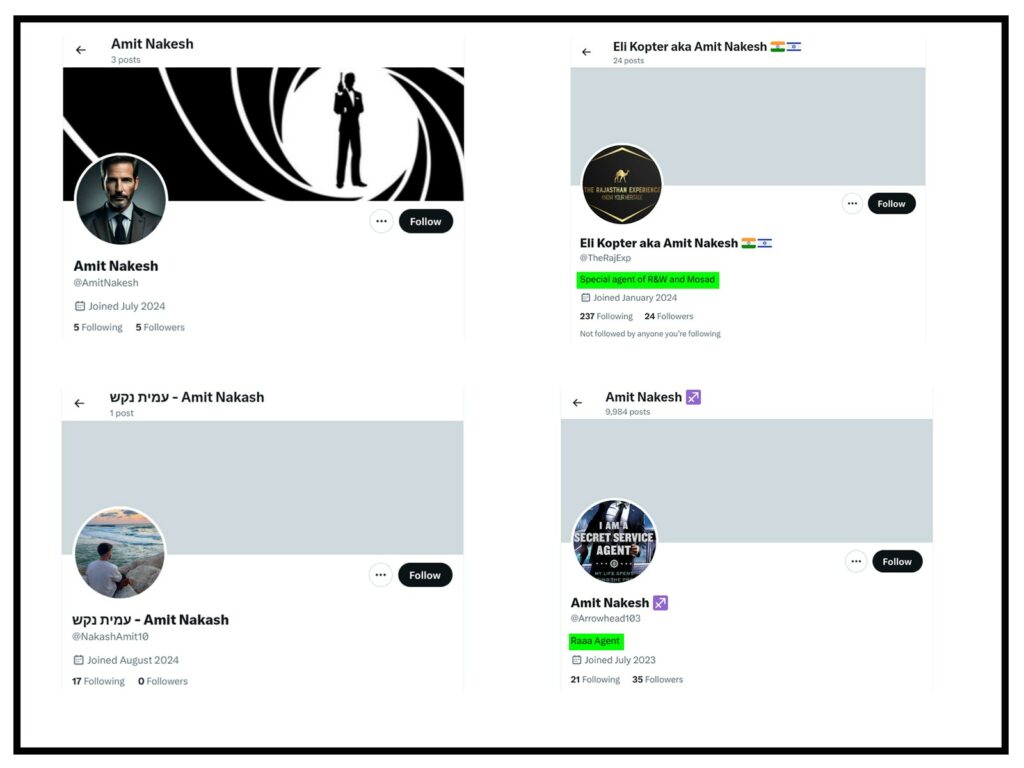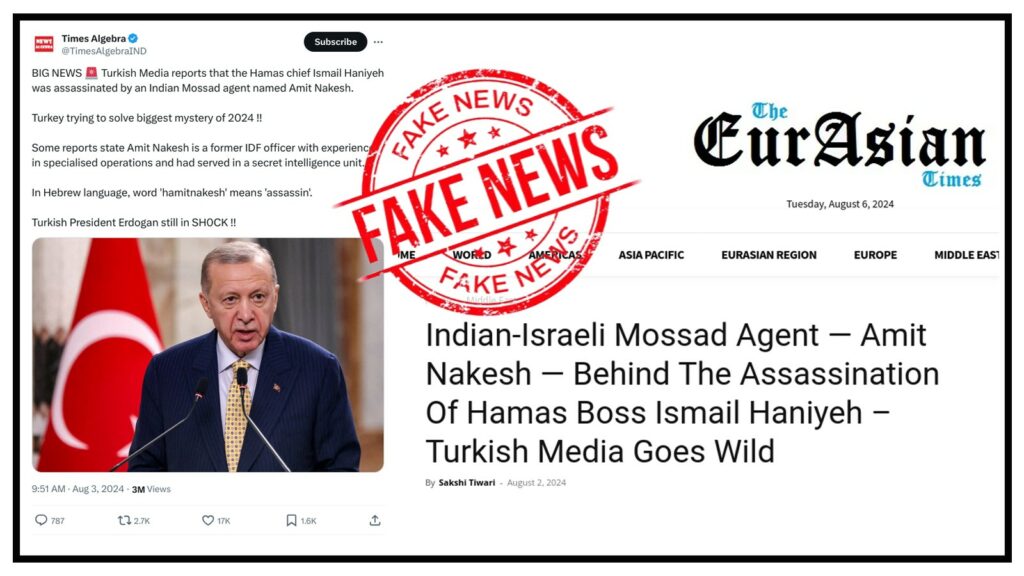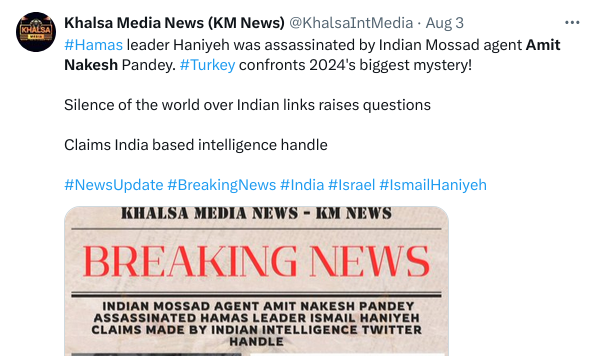- The recent incident involving Turkish media falling prey to a misinformation prank serves as a stark reminder that even established and reputable outlets are susceptible to disinformation.
- The Turkish media was slow to react to the prank but eventually did realise their mistake and scrubbed off all the mentions of the mythical assassin.
- The news of India’s involvement spread like wildfire, also because of the recent upheaval in the geopolitical chessboard, with Justin Trudeau directly blaming India for the killing of Khalistani extremist Hardeep Singh Nijjar, and Australia’s ABC News releasing a bogus documentary, “Nest of Spies,” outrightly pointing fingers at India’s security agencies without any substantial proof.
In an era where information flows freely and rapidly, the media serves as a critical gatekeeper, entrusted with delivering accurate news to the public. However, even seasoned news outlets are not immune to the pitfalls of misinformation. Recently, Turkish media found itself at the centre of a storm when it fell victim to a cleverly orchestrated prank, highlighting the ever-present dangers of false information in the digital age. This incident underscores the need for heightened vigilance and verification in journalistic practices.
After Hamas chief Ismail Haniyeh was killed on July 31, several Turkish media outlets including reputed names like Akdeniz Gercek Gazetesi and Guneydogu Ekspress stated that the leader of the terror outfit was assassinated by a Mossad agent named ‘Amit Nakesh’. While the name sounds Indian, it is fictional and a clever play on a similar-sounding Hebrew word ‘hamitnakesh’ that means ‘assassin’.

After the reports of Haniyeh’s killing surfaced, Israeli social media users started posting the clever play on the name, which ultimately flummoxed the Turkish media channels. It all started with a tweet from Dr. Eli David on the social media platform X, which gained massive traction quickly, and to which the Turkish media instantly fell prey.

According to a report in The Jerusalem Post, having named a fictional Mossad operative, the channels doubled down and went as far as tracing the origins of the shadowy, Indian-sounding Israeli assassin. Some reports stated that Nakesh was “a former IDF officer with experience in specialised operations” and had served in a “secret intelligence unit”.

Media outlets like Usak Olay even created backgrounds for the fake agent, claiming that he was a former IDF officer who had served in a secret intelligence unit and was known for his experience in specialized operations. Herkes Duysun identified his rank as colonel hinting that it was their animosity with India which led them to further cook the story.
Another prominent Turkish media outlet, TÜRKİYE TAKVİMİ blamed intentional Israeli manipulation for the proliferation of Nakesh’s name and ostensible profile in Turkish media. Taking the farce to new heights, the news website of the Akdeniz Gerçek Gazetesi newspaper dedicated an entire profile piece to the fictitious Amit Nakesh. Their report read: “Amit Nakesh is a seasoned agent of Mossad, Israel’s clandestine intelligence service. Following his military service, Nakash joined Mossad and became involved in high-profile operations. His expertise lies in assassinations and intelligence gathering. Amit Nakesh has been a key player in several operations targeting entities Israel deems hostile.”
Here is the corrected version of the sentence:
Even Ilay Aksoy, General Executive Board Member of the Democratic Party in Turkey, with around 90K followers on X, was quick to put up the name of Amit Nakesh in the assassination of the Hamas leader without verifying the complete story.

The news of India’s involvement spread like wildfire, also because of the recent upheaval in the geopolitical chessboard, with Justin Trudeau directly blaming India for the killing of Khalistani extremist Hardeep Singh Nijjar, and Australia’s ABC News releasing a bogus documentary, “Nest of Spies,” outrightly pointing fingers at India’s security agencies without any substantial proof. The Turkish media was slow to react to the prank but eventually did realise their mistake and scrubbed off all the mentions of the mythical assassin.
Soon, the keyboard warriors across X found it an apt opportunity to flame the fire of misinformation. Many new handles were created instantly claiming themselves to be an Indian agent.

Indian media outlets too like the Times Algebra and The EurAsian Times were quick to jump to conclusions without verifying the facts. Interestingly, their tweets garnered significant traction upon X.

The joke was evocative of a previous incident in which reports circulated following the death of Iranian President Ebrahim Raisi. Social media users and a telegram channel affiliated with Hamas claimed that Raisi had been assassinated by Mossad agent Eli Copter, the name being a corruption of the word “helicopter.”
The fake news provided an ideal opportunity for anti-India entities to advance their agenda. For instance, the X account Khalsa Media News (currently withheld in India), an active pro-Khalistani bogus media channel, blatantly asserted that the world must raise questions against India for its involvement in the killing to tarnish its global reputation.

Thus, in times like these, where information is abundant and readily accessible, it is crucial to remain vigilant about the news we consume. The recent incident involving Turkish media falling prey to a misinformation prank serves as a stark reminder that even established and reputable outlets are susceptible to disinformation.
As consumers, we must develop a critical eye, questioning the sources and verifying the facts before accepting any information as truth because enemies are always on the lookout to further their agenda using any means. Only through collective awareness and diligence can we safeguard ourselves from the pervasive threats of misinformation in the digital age.
(Diksha Bharti is currently pursuing a Master’s program in Russian studies. She has previously worked as a Research Associate at Politika and the Consilium Research Institute. She has a keen interest in geopolitics and has contributed to several reputed platforms. Views expressed are the author’s own.)
Diksha Bharti is currently pursuing a Master’s program in Russian studies. She has previously worked as a Research Associate at Politika and the Consilium Research Institute. She has a keen interest in geopolitics and has contributed to several reputed platforms. Views expressed are the author’s own.
